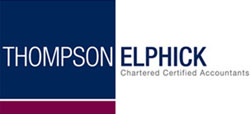Enterprise Investment Scheme investee businesses
The Enterprise Investment Scheme (EIS) is designed to help smaller higher-risk trading companies to raise finance by offering a range of tax reliefs to investors who purchase new shares in those companies.
To claim investor EIS tax reliefs, the company which issues the shares has to meet a number of rules regarding the kind of company it is, the amount of money it can raise, how and when that money must be employed for the purposes of the trade, and the nature of its trading activities.
The main qualifying criteria for EIS investee businesses are as follows:
- The maximum amount of funds that a company can raise through investments qualifying for the EIS is £5M in any 12 months with a maximum of £12m over the company’s lifetime. There are higher limits for ‘knowledge-intensive’ companies.
- There is a maximum limit on the number of employees that the investee company can have when shares are issued. The company must have less than 250 full-time employees or their part-time equivalents. For groups of companies, the limit applies across the group. There are higher limits for ‘knowledge-intensive’ companies.
- The company’s gross assets (or the group assets if the company is a parent company) must not exceed £15 million before any shares are issued and not be more than £16 million immediately afterwards.
- There are also time limits as to when investments can be raised by the company and how and when the money must be spent.
It is important that businesses looking to raise finance using the EIS scheme ensure that they qualify. Otherwise, their investors will be unable to claim the promised tax reliefs. HMRC offer an ‘advance assurance’ service that can help ensure everything is in order before raising finance.










